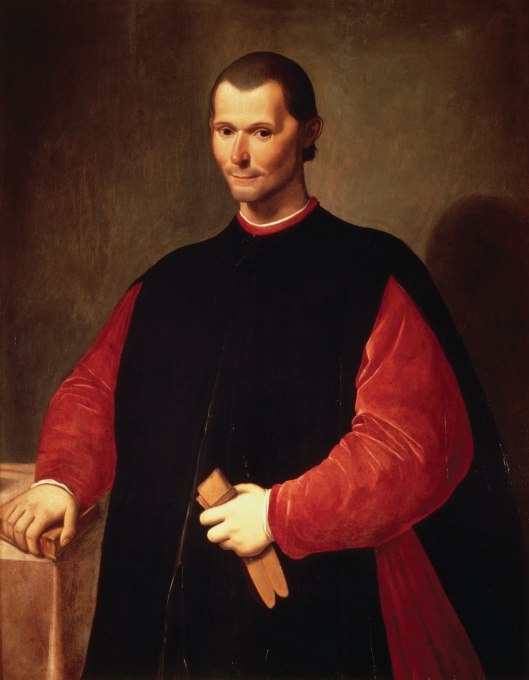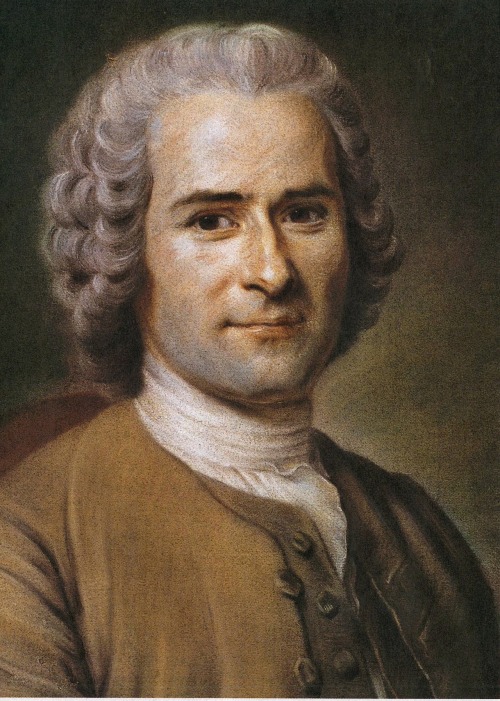In this ever changing world, the only constant thing is change. Aside from all these changes, one thing that remains constant would be the ancient beliefs that we hold on to. All the ideals we have stem from ancient philosophical practices. From the way our countries are governed to how the law is implemented in each country all have its foundation in philosophy. Many just think that philosophy is an outdated branch of the academic world. But if one would really get down to the core of philosophy, one would see how our current lives are closely intertwined with philosophical principles and how we have imbibed these standards and made it part of our daily lives. With this, here is a list of the top 10 greatest philosophers in the world:
10. John Locke

Photo Source: raymondpronk.wordpress.com
One of the greatest philosophers in the history who had shaped politics of the modern world, John Locke is often touted to be the Father of Liberalism. His ideas were focused on principles that dealt with humanism and individual freedom. He was the proponent behind equal rights. He strongly believed in “government with the consent of the governed.” It is his belief that the ideal government is one wherein people are given equal rights under the law. Part of his theory was that there are three rights which are natural and innate to all human beings. These would the right to life, right to liberty and right to estate. He was not in agreement to the ways of the European nobility as he felt that the poor people were not given equal rights as compared to those who were of noble descent.
9. Niccolo Machiavelli

Photo Source: exequy.wordpress.com
One of the most renowned philosophers, Niccolo Machiavelli possessed an unparallel and incomparable philosophy of mind. Being a statesman and a political theorist in Italy, he constantly looked at the realistic side of things. He wrote the Prince in 1513 which contained his hypothesis on how one can use absolute power in order to be able to achieve political strength. One of the more salient assumptions that made Machiavelli very popular would be his belief that the end justifies the means. He believed that the ways one would choose to go about to attain a certain goal is not important. What matters would be the actualization of the goal in mind.
8. Jean-Paul Sartre

Photo Source: letrafilosofica.blogspot.com
Highly renowned for his views on existentialism, Jean-Paul Sartre was known to have written plays and other works which showcased his philosophical observations found in his collection of philosophy journal. The plays he wrote were targeted to the general public and not to the elite, like his other contemporaries. Known for his analysis on existentialism, existentialism focused on what it meant to be “Being” and how it differed from “Nothingness. With views rather similar to that of Karl Marx, it was part of his theory that men are “condemned to be free”. Having a choice or making choices are not a privilege but rather a responsibility.
7. Michel Foucault

Photo Source: www.siempre.com.mx
A member of the academe, Foucault would often ask about how things happened and how things worked. He would constantly have questions about the nature of things and why things turn out the way they do. He was deeply interested in the nature of human beings and refused to accept the common beliefs as to why human beings will choose to behave in certain ways. He focused his study on the interaction between humans and science as seen in society. In order to formulate theories, he used ideas seen in sociology and history to understand the interaction of humans in ancient philosophy. He believed that there is not just one clear cut reason as to why something would happen.
6. Confucius

Photo Source: room5worldhistory.blogspot.com
Considered to be the most important philosopher seen in the Eastern history, Confucius is highly popular and reputed for his wise sayings and teachings. As he worked closely with the government, he had a lot of assumptions on politics and even ethics. Many would say that the idea behind democracy was a product of the Western world. But upon going through Confucius’ works, it could be seen that he was already writing about politics in line with democracy as early as 500 BC. In fact one of his more popular beliefs would be that “the best government is one that rules through rites and the people’s natural morality, rather than by using bribery and coercion.” Coinciding with the thoughts of the Greeks in realms of the Greek Philosophy, Confucius believed that the government should be ruled by the people.
5. Socrates

Photo Source: www.dch.gov.tr
One of the first Greek thinkers and Greek philosophers, Socrates was known for being one of the first philosophers of the Western world. He is best known for the Socratic Method. The Socratic Method teaches one to ask for the definitions of concepts that are abstract in nature. Once one would get the answer, one needs to look for any contradictions to these answers.
4. Jean-Jacques Rousseau

Photo Source: tumblr.com
One of the most important people during the time of the French Enlightenment, Rousseau was known for “The Social Contract”. He believed that men are inherently good when they are born. However due to the society they live in, they tend to eventually become corrupted. This became an integral part in Philosophy of Education because of the contribution that he had shared in the history.
3. Friedrich Nietzsche

Photo Source: kootation.com
Well known for his beliefs on how he would reject the Christian doctrine in line with the Western nobility, Friedrich Nietzsche believed that the solution to the imperfection seen in the society during his time would be by creating or being a person who lives by celebrating life and upholds his own values. His theory stated that one’s own morality or will to power makes me superior as compared to other human beings. His works were used widely by the Nazis when they created their own doctrines that also changed the history of philosophy.
2. Plato

Photo Source: www.kidspast.com
Known to be one of the major forces behind the philosophies of the Western world, Plato is known for his theory, “The Forms”. According to him, abstractions which are immaterial are the highest form of reality in this world. As things in our material world changes, so does the human perception of these material things. Because of that, we are lesser beings as compared to a greater being who created the Universe. Plato philosophy is really exceptional, and it’s being quoted from one generation to next generation.
1. Aristotle

Photo Source: www.bun.kyoto-u.ac.jp
One of the most popular philosophers, Aristotle is known to have written works ranging from topics on logic to ethics, politics and even literature. He was also the first person who started arguing that the Universe follows a hierarchy. He believed that there are purposes for every being in this Universe as seen in the Animal Kingdom, Plant Kingdom and as seen among humans. His way of thinking is really amazing that will drive men to ponder deeply his thoughts.
